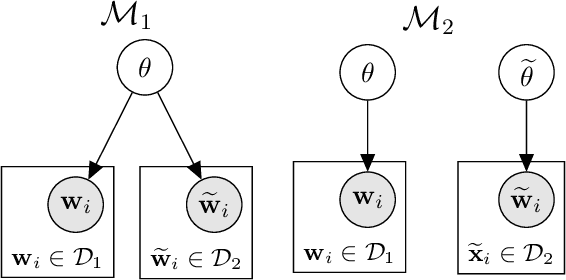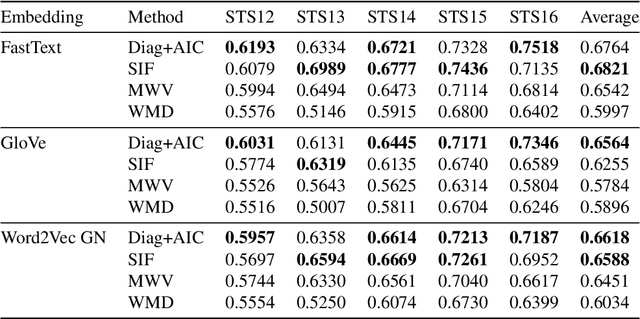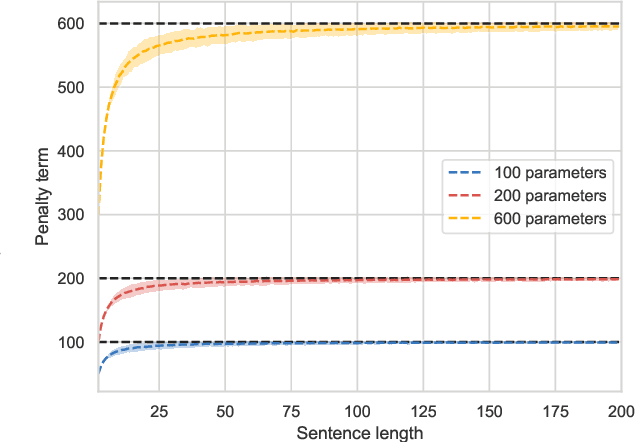Model Comparison for Semantic Grouping
Paper and Code
May 01, 2019



We introduce a probabilistic framework for quantifying the semantic similarity between two groups of embeddings. We formulate the task of semantic similarity as a model comparison task in which we contrast a generative model which jointly models two sentences versus one that does not. We illustrate how this framework can be used for the Semantic Textual Similarity tasks using clear assumptions about how the embeddings of words are generated. We apply model comparison that utilises information criteria to address some of the shortcomings of Bayesian model comparison, whilst still penalising model complexity. We achieve competitive results by applying the proposed framework with an appropriate choice of likelihood on the STS datasets.
* Proceedings of the 36th International Conference on Machine Learning
View paper on
 OpenReview
OpenReview
 Add to Chrome
Add to Chrome Add to Firefox
Add to Firefox Add to Edge
Add to Edge